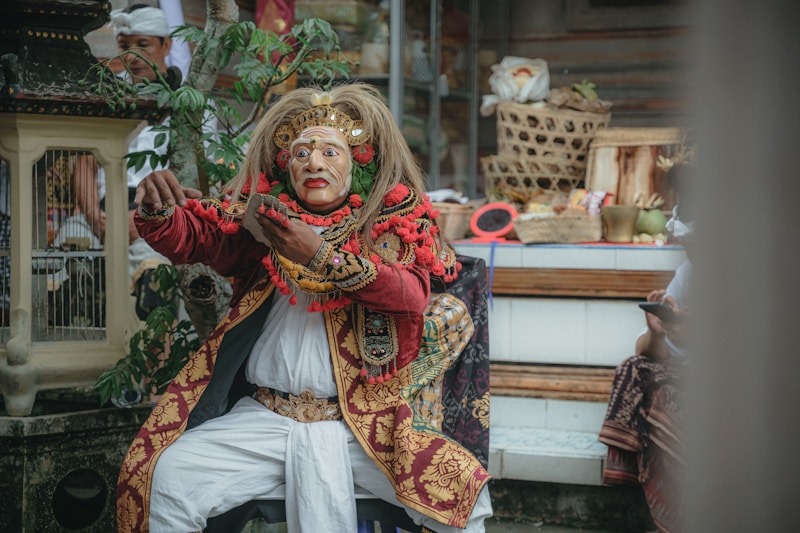Exploring the Religious Influences on Weddings: A Global Perspective
Understanding the Role of Religion in Wedding Ceremonies
Weddings are more than just a union between two individuals; they are significant cultural and social events that reflect various traditions, beliefs, and values. One of the most influential aspects of weddings is religion. Different faiths, such as Christianity, Islam, Hinduism, and Buddhism, bring unique customs and rituals that shape the matrimonial experience. This article delves into the multifaceted ways religion influences weddings around the world, offering insights into traditions, practices, and the essential questions that arise during wedding planning.
The Importance of Religious Ceremonies
At the heart of every wedding lies a personal commitment and a public declaration of love. Religion often provides the framework within which this commitment is made. Religious ceremonies serve not just as a legal contract but as a spiritual covenant. They symbolize the joining of two lives in the presence of a higher power and the community, adding profound meaning to the celebration.
Key Religious Influences on Wedding Practices
Across different religions, there are common themes that can be observed. Below are some of the most notable practices influenced by various religions:
| Religion | Influence on Weddings |
| Christianity | Vows exchanged in front of God, the significance of the marriage license, and the celebration of the Eucharist in some traditions. |
| Islam | The signing of the Nikah contract, the importance of Mahr (dowry), and community involvement through Walima celebrations. |
| Hinduism | Rituals such as Saptapadi (seven steps), the symbolic importance of fire, and various pre-wedding ceremonies like Mehndi and Sangeet. |
| Buddhism | Ceremonies that emphasize harmony, mindfulness, and often involve blessings from monks. |
Cultural Nuances within Religious Weddings
While religion provides a general framework for wedding practices, cultural variations within each faith often lead to unique rituals and celebrations. For instance, a Christian wedding in the United States may differ from one in Italy. This variation can occur due to local customs, languages, and even interpretations of religious texts.
Regional Variations
To further highlight regional differences, let’s examine how weddings are celebrated across various locales:
| Region | Religious Practices |
| United States | Traditional Christian ceremonies often incorporate personal touches, such as custom vows or family heirlooms. |
| Middle East | Islamic weddings are often grand affairs, highlighting the importance of family and community with vibrant celebrations. |
| India | In Hindu weddings, elaborate rituals may last several days, emphasizing familial bonds and cultural heritage. |
| Southeast Asia | Buddhist weddings may involve meditation and blessings, focusing on peace and harmony in the couple's journey. |
Common Questions Regarding Religious Influences on Weddings
As individuals prepare for their wedding, several questions often arise related to the influence of religion:
- What religious considerations should we make while planning our wedding?
- How can we blend our different religious backgrounds into a unified ceremony?
- What are the legal aspects of religious marriages in different countries?
- Are there specific rituals unique to our faith that we should incorporate?
- How important is it to involve family and community in our religious ceremony?
Blending Traditions in Interfaith Weddings
In an increasingly multicultural society, interfaith weddings are becoming more common. Couples from diverse backgrounds often seek ways to honor their individual faiths while creating a shared experience. This might include incorporating symbols from both religions, having dual ceremonies, or even inviting religious leaders from both faiths to co-officiate. Such practices allow for deeper connections and understanding between the couple and their families.
The Role of Rituals in Strengthening Marital Bonds
The rituals associated with religious weddings are often designed to reinforce the couple’s commitment to each other. For example, the exchange of rings symbolizes eternal love in many Christian ceremonies, while the seven steps taken by a Hindu couple during the Saptapadi represent their vows to support and care for one another. These rituals serve as a reminder of the responsibilities and promises made, strengthening the bond between partners.
Incorporating Faith into Wedding Receptions
Beyond the ceremony, many couples choose to reflect their religious beliefs in their wedding receptions. This might include serving traditional foods specific to their faith, incorporating prayers or blessings at the beginning of the meal, or even featuring music that reflects their cultural heritage. Such details can enrich the overall experience and bring families together in celebration.

Conclusion: Embracing Religious Influences in Your Wedding Planning
In conclusion, the influence of religion on weddings is profound and multifaceted. Understanding the religious customs and practices can significantly enhance the meaning and significance of the celebration. Whether you are planning a traditional marriage or an interfaith ceremony, it is essential to take the time to explore and honor the religious aspects that resonate with you and your partner.
If you find yourself navigating different religious customs, consider having open discussions with family and your partner to find common ground. Ultimately, the goal is to create a beautiful and heartfelt celebration that reflects your love and respect for each other’s beliefs.
As you embark on this journey, remember that the essence of marriage lies not just in the religious or cultural practices, but in the commitment and love you both share. Happy planning!